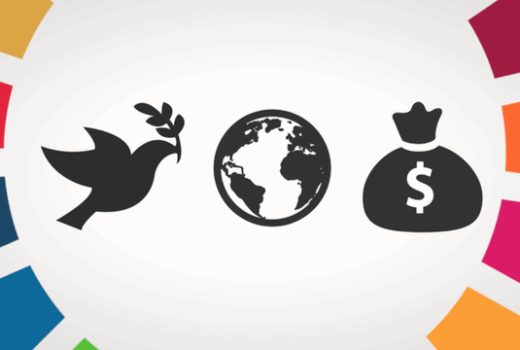World’s food and energy systems key to tackling global biodiversity decline
Report / 27th October 2016The Living Planet Report 2016 reaffirms WWF’s ‘One Planet Perspective’ on the need for better choices for governing, using and sharing natural resources within the Earth’s ecological boundaries. Ultimately, addressing social inequality and environmental degradation depends on creating a new economic system that enhances and supports the natural capital upon which it relies.
Think U.S. agriculture will end world hunger? Think again.
Report / 21st October 2016A new report by the Environmental Working Group confronts the myth that American farmers must double their food production to ‘feed the world’. Instead, the key to ending world hunger while protecting the environment is to help small farmers in the developing world increase their productivity and income, and to promote “agro-ecology” everywhere.
Annual Report for 2015: Share The World’s Resources
Report / 24th December 2015Our annual review for 2015 provides an overview of STWR’s activities over the course of the year as well as our key areas of focus for 2016, which includes ongoing research and writing projects alongside new plans for campaigning, networking and publications.
Beyond the Sustainable Development Goals: Uncovering the truth about global poverty
Report / 29th September 2015The Sustainable Development Goals – despite their positive and progressive rhetoric – by no means constitute a transformative agenda for meeting the basic needs of all people within the means of our shared planet. This report argues that we may never see an end to poverty “in all its forms everywhere” unless ordinary people unite in their millions and demand the universal realisation of fundamental human rights through huge, continuous and worldwide demonstrations for economic justice.
Heralding Article 25: A people’s strategy for world transformation
Report / 30th July 2015After so many years of political inaction only the massed goodwill of ordinary people can bring about an end to poverty in a world of plenty through enormous and continual protests across all countries. So let’s take the path of least resistance and jointly herald the long-agreed human rights of Article 25—for adequate food, housing, healthcare and social security for all.



